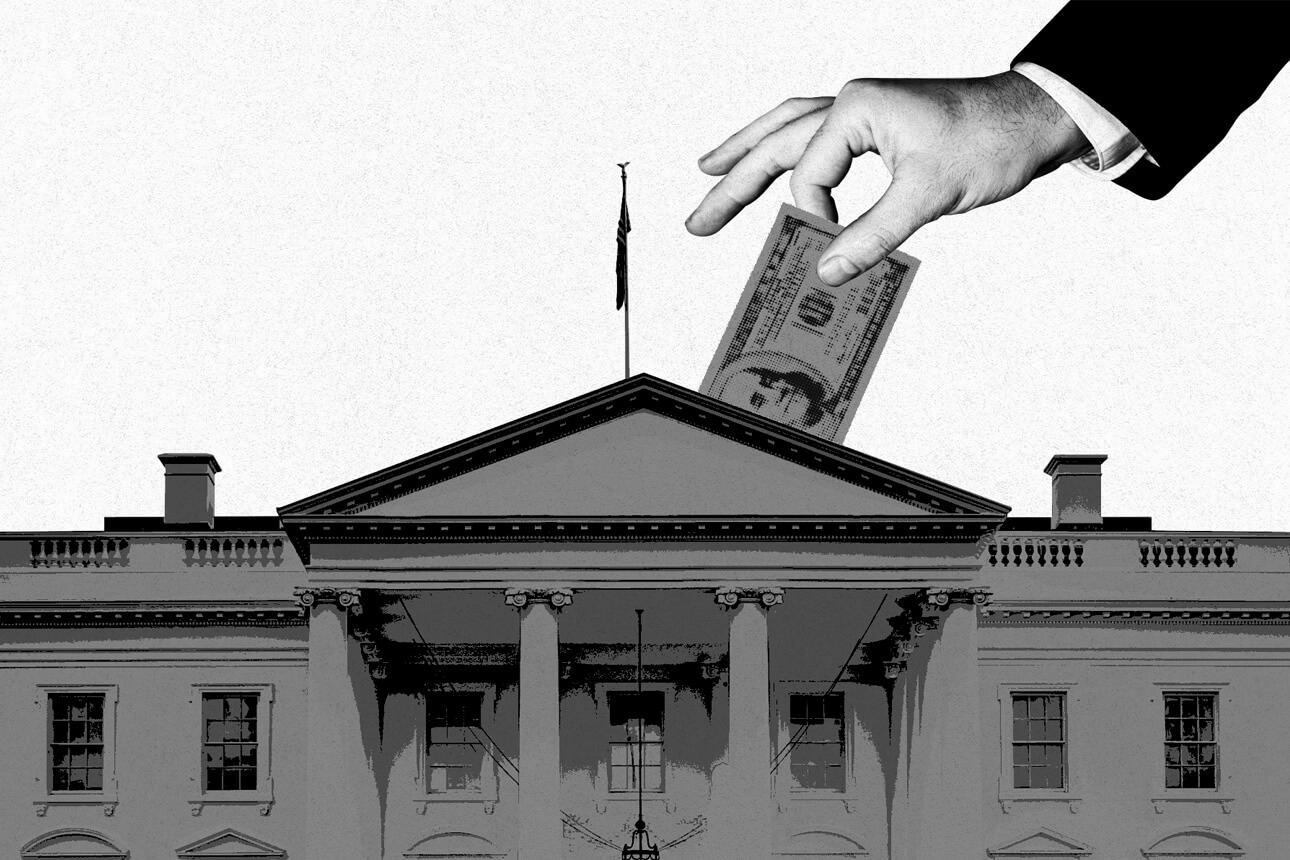MIT SMR | Getty Images
The rules of corporate influence in Washington are changing dramatically. In President Donald Trump’s second term, power has shifted from Congress to the White House, turning lobbying into a personalized game of presidential access. At the same time, the use of AI tools is transforming lobbying efforts and posing ethical dilemmas. As the lobbying landscape shifts, executives must deal with the current situation with open eyes and a carefully considered strategy.
It’s not hard to like the president when he’s announcing a $500 billion plan to fund your technology startup.
OpenAI CEO Sam Altman, once a critic of President Donald Trump, recently stood side by side with him to announce Project Stargate, a multicompany effort to shore up America’s edge in artificial intelligence. Shortly thereafter, Altman took to social media platform X to announce, “Watching @potus more carefully recently has really changed my perspective on him. … I’m not going to agree with him on everything, but I think he will be incredible for the country in many ways.”
This about-face might have been stunning if Trump hadn’t just been feted at his inauguration by America’s tech elite, including onetime adversaries Jeff Bezos, Sundar Pichai, and Mark Zuckerberg, each of whom contributed a seven-figure sum to help pay for the event.
And business leaders aren’t just currying favor through donations and jawboning. Zuckerberg’s Meta settled a $25 million lawsuit brought by Trump after leaving office in 2021, with $22 million of that going toward his presidential library. This is literally a settlement payment in hopes of better relations and lighter regulation. One law firm agreed to donate $40 million in pro bono support to causes of Trump’s choosing in order to get out from under a crushing executive order, and another agreed to donate $100 million.
Now, embattled Democrats like New York City mayor Eric Adams are spending time at “White House South” — Trump’s Mar-a-Lago Club in Florida — and in Adams’s case, getting federal charges against him dropped after promising not to publicly criticize Trump’s immigration policy. And why not? The cryptocurrency industry managed to leverage promises of substantial campaign donations and access to key far-right influencers in order to secure the pardon of Ross Ulbricht, the mastermind of the largely illicit Silk Road crypto-powered marketplace.
For CEOs, this is not the way U.S. politics normally works. Lobbying has always had a transactional side, with rich corporations paying high-priced influence peddlers to make sure their pet issue or carve-out is treated kindly in the halls of Congress or by the president.
Reprint #:
“The MIT Sloan Management Review is a research-based magazine and digital platform for business executives published at the MIT Sloan School of Management.”
Please visit the firm link to site






